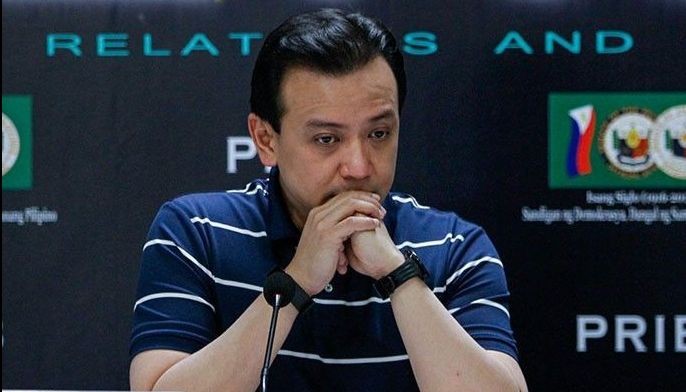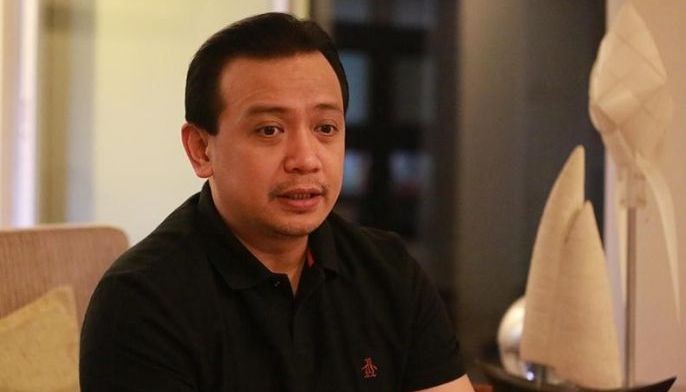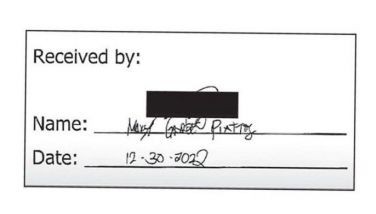Trillanes’ camp moves for testimonial hearing, DOJ strongly opposes motion
MANILA, Philippines (Update 2, 11:51 a.m.) — The Department of Justice on Friday opposed the plea of Sen. Antonio Trillanes IV asking the Makati court— that issued a warrant against him—to conduct a testimonial hearing on their case.
Makati Regional Trial Court Branch 150 held a hearing on Friday on Trillanes’ plea to set aside the ruling of the court dated September 25 that granted DOJ's plea for warrant against the senator.
The senator’s camp also prayed for a testimonial hearing, instead of a summary hearing, to “fully ventilate” the case.
Lawyer Reynaldo Robles, Trillanes’ legal counsel, argued before open court that the Supreme Court’s ruling refers to the determination the factual issues on Proclamation 572.
DOJ’s motion for warrant is anchored on President Rodrigo Duterte’s Proclamation 572 that said the amnesty granted to Trillanes is “void from the beginning,” as the senator failed to comply with the requirements for application.
The DOJ filed their comment or opposition on the hearing, asking the court to deny the senator’s plea due to lack of merit.
The hearing lasted for less than 30 minutes.
DOJ: Court already ruled on the motion
The DOJ in their comment said that the arguments raised by Trillanes’ camp in their motion were “comprehensively and correctly ruled upon by the Honorable Court.”
"As correctly held by this Honorable Court, the best evidence to prove that accused Trillanes filed his application for amnesty is the duly fill-up application form itself, its duplicate or photocopy,” the comment or opposition read.
“Without the presentation of the duly filled-up amnesty application form of accused Trillanes, its duplicate or photocopy, coupled with the negative certification of the Office of J1, Armed Forces of the Philippines, there is application to speak of, and its existence is suspect,” the DOJ added.
The DOJ is pertaining to the certification issued by Lt. Col. Thea Joan Andrade stating that no records of the senator’s application for amnesty were available.
During a separate hearing at the Makati RTC Branch 148, where the court was hearing the DOJ’s similar plea for warrant, Andrade said in open court that she “never intended” to testify that Trillanes did not apply for amnesty.
Robles asked the court to allow witnesses to testify to the case.
But Makati RTC Branch 150 Judge Elmo Alameda, in open court, stressed that the application form with Trillanes’ information remains as best evidence for the case.
Trillanes’ presentation of his duly filled-up form “would have ended the hearing,” the judge said.
“The Court wanted you to present the best evidence,” he added.
Alameda gave Trillanes’ camp five days to comment on DOJ’s opposition, while the state prosecutors may file their rejoinder to the senator’s comment, if necessary.
September 25 ruling
Alameda, in his September resolution, said that it found “factual and legal basis” for the issuance of Proclamation 572.
But the senator’s camp said that Alameda’s ruling was “premature and/or for lack for legal and/or factual basis.”
Makati RTC had been hearing the rebellion case against Trillanes over the 2007 Manila Peninsula siege when it dismissed the case pursuant to the amnesty granted to the senator.
Alameda’s September order effectively revived the rebellion case.
- Latest
- Trending






























